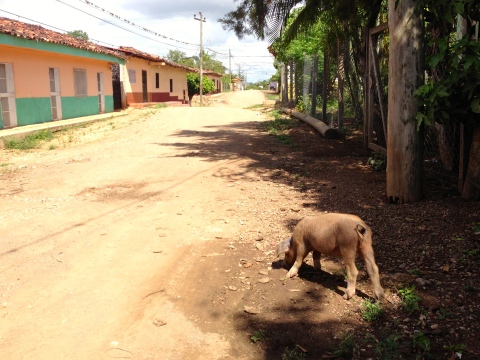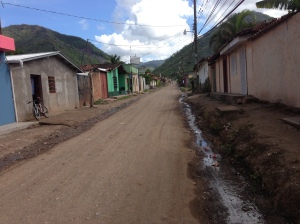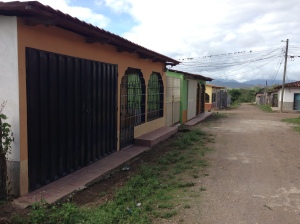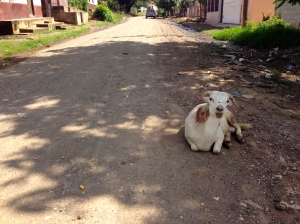It seems I have aptly named this blog, for I have had the opportunity to share much grief and joy in the past month. I do not know how to recount the events with gusto and flutter, so I’ll write it as it occurred, leaving out information that may get me into trouble.
Seceral weeks, the family of one of my 3rd grade students was attacked outside of town while in their vehicle by a small group of lackeys sent by a powerful man in a nearby town: a case of mistaken identity wrought by a case of mistaken culpability.
You see, an important man’s immediate family in the nearby town was murdered on the side of the highway right before I arrived a month ago, and someone blamed a powerful family here in San Francisco de la Paz. Ever since then, there have been violent attempts and fears of retaliation.
After discovering that they had shot up the wrong car, the men asked for forgiveness and drove away. My student is still in the hospital with bullet wounds, and his mother died a couple days ago. His father is still alive, fortunately.
Although I only had this student for less than 2 weeks, it is sobering to ponder on how precarious life is here in Honduras, even for the innocent. Probably more sobering to me is that most people expect this sort of thing from life. In the United States, the school would have been overrun with child psychologists and group sessions. Here the children hardly gave notice of the matter.
Indeed, life goes on as normal. My first week at school I was invited to a wedding that I attended several Saturdays ago. Nely is a very pretty 20-something who co-directs the school with an open hand and a loose bell schedule, who I have come to like as an acquaintance, but scorn as a school director.
The church part of the wedding was long and tedious. The priest spoke at length about fidelity, marriage, God, the church, the inconvenient decorations, and the Eucharist, while the bride and groom and everyone else waited for over an hour. The wait did afford ample opportunity to soak in the charm of the aged Spanish-style columns, gold and green wedding decorations, and the icons of various saints lining the walls. The church was well packed; Nely and her husband are well-respected in the community. Afterwards there was a reception which was interesting, but quite long. We did not dance afterwards, a show of respect for Nely’s dead brother, who was murdered a year ago. The whole affair made me appreciate my Protestant heritage.
The wedding was a happy break in the midst of continued pain and sadness in the town. Although now my emotions over the event have dulled somewhat, I still recall the shock of yet another death. The husband of someone I’ve come to think of here as a close mentor died of a heart attack in the municipal building a day after the wedding. He was one of a precious few good men of influence in this town, and his good dinner conversation will be sorely missed. His family is still grieving, and despite my short time knowing them, I share their pain. There was a wake, a funeral service and caravan (a crowd of people walking down the street), several special church services, and a shrine in the home.
To me, human life has never been so fragile and valuable than in the past month.
I have much more to tell you, but I have been living much faster than I have been able to write. I will update again soon.



